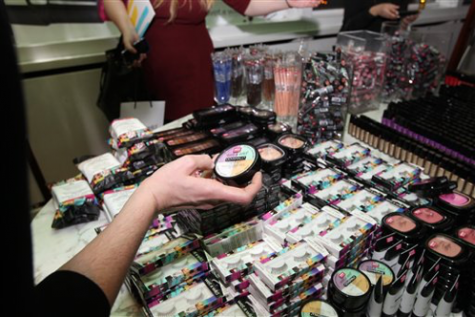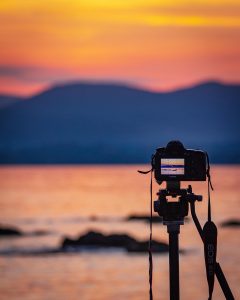Is Makeup Really Worth It?
January 30, 2017
The world as we know it is being enhanced, altered, and changed; who would have thought that same idea would be brought to your face?
That change is known to the world as makeup. The very word suggests altering the natural appearance of women everywhere and has become a necessity to many. The necessity for some alters into an obsession, creating a feeling of insecurity when forced to go without it. Now, women across the world are depending on their application of makeup as their source of confidence and self esteem.
According to Lauren A. Silverio, writer of the essay “Makeup’s Effect on Self Esteem”, makeup has been around since the era of the Ancient Egyptians. Not only did these Egyptian women use makeup to make themselves look more beautiful, but to also ward off evil spirits. Silverio explained that makeup developed even further to the ages of the Roman Empire, where makeup was a sign of social status as well as beauty.
Now, makeup is a higher necessity than ever. In 2008, YWCA USA created a report, “Beauty at Any Cost”, which displayed the obsession of beauty on women across America. The report concluded that not only does the makeup obsession result in decreased confidence, but it also is putting a dent in people’s pockets. YWCA reported seven billion dollars spent each year on cosmetics, and the number has increased since then.

In addition, Beautiful Magazine concluded that 44 percent of women feel unattractive without makeup. Also, 28 percent felt self conscious and “naked” without makeup in public.
Similarly, Barbara Greenburg, author of Huffington Post’s article on makeup and self esteem, found in her research that approximately 20 percent of girls between the age eight to eighteen describe feeling unappealing, undesirable, and simply not confident when they are not wearing makeup.
Furthermore Thomas Cash, conductor of the study “Effects of Cosmetic Use on Body Image of the American Woman”, noticed a similar trend between makeup and its appeal and effect on women in the United States.
“Cosmetics use, in general, function to manage and control not only social impressions but also self image,” said Cash.
Cash also explained how makeup gives women the ability to actively control and modify their appearance for brief periods of time. In other words, makeup is used differently in different situations because it makes women feel self confident.
Similar to Cash’s statements, Silverio saw similar observations throughout her various research, and she even related confidence to social aptitude. Silverio’s study concluded that those who are considered to be more attractive have greater social skills and fewer difficulties with loneliness and social anxiety.
“We look into the mirror not merely to see how we look, but how we expect others to see us, and, unless amazingly self confident, we attempt to modulate our appearances so that others see us as we hope to be seen,” said Silverio.
In hopes to boost confidence in young women, CNN shared the “No Makeup Movement.” It began with vocal superstar Alicia Keys, in hopes to inspire young girls to embrace their natural beauty. Celebrities such as Beyonce, Zendaya, Lady Gaga, and many more are presenting themselves without makeup to their many followers on social media in hopes to boost young girls confidence to believe in their natural selves.
“’Cause I don’t want to cover up anymore. Not my face, not my mind, not my soul, not my thoughts, not my dreams, not my struggles, not my emotional growth. Nothing. No one should.” Keys said.







